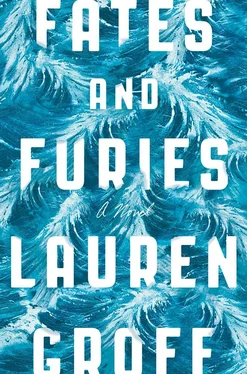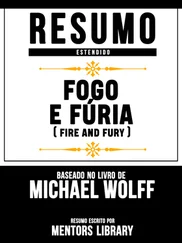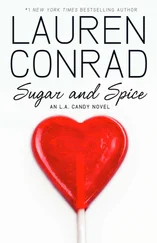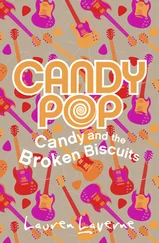A stranger hurrying as fast as he could over the icy sidewalks looked in. He saw a circle of singing people bathed in the clean white light from a tree, and his heart did a somersault, and the image stayed with him; it merged with him even as he came home to his own children, who were already sleeping in their beds, to his wife crossly putting together the tricycle without the screwdriver that he’d run out to borrow. It remained long after his children ripped open their gifts and abandoned their toys in puddles of paper and grew too old for them and left their house and parents and childhoods, so that he and his wife gaped at each other in bewilderment as to how it had happened so terribly swiftly. All those years, the singers in the soft light in the basement apartment crystallized in his mind, became the very idea of what happiness should look like.
—
ALMOST MIDNIGHT and Rachel couldn’t get over the ceiling. What chutzpah had made Mathilde gild it! Their bodies echoed, globs in the brightness above. It did transform the room, shining elegantly against the dark walls. On this frigid last day of the year, it seemed a hand had peeled back the roof like the lid of a sardine can and they were standing beneath an August sun.
It was unbelievable that this was the same empty white space that she had walked into on the day of their housewarming party more than seven years earlier, with its wild roil of bodies and beer stink, the glorious sweaty heat and the garden radiant with early-summer light out the windows. Now there were icicles shining in the streetlights. There were orchids around the Buddha, overgrown money plants in the corners, Louis XIV chairs covered in French flour sacking. It was elegant, overstuffed, too beautiful. A gilded cage, Rachel thought. Mathilde had been short with Lotto all evening. She no longer smiled when she looked at him. Well, she barely looked at him. Rachel was afraid that Mathilde, whom Rachel loved as dearly as anyone, was about to bust out of it all in a commotion of wings. Poor Lotto. Poor all of them if Mathilde left him.
Rachel’s new girlfriend, Elizabeth, a girl so pale of hair and skin she seemed made of paper, felt Rachel’s nerves ratcheting up and squeezed her shoulder. The tension went out of Rachel. She took a wobbly breath and kissed Elizabeth shyly on the neck.
Outside, the swift passing of a cat body on the sidewalk. It couldn’t be the tabby owned by the old lady from upstairs. That cat had been ancient when Lotto and Mathilde had moved in; last Christmas it starved for three days, until Lotto and Mathilde got ahold of the landlord vacationing in the British Virgin Islands and had someone investigate. Poor rotted dead Bette. Lotto had to take a hysterical Mathilde to Samuel’s apartment for a week just to get her to calm down while the fumigators were in. Strange to witness composed Mathilde lose it; it made Rachel see her as the thin, big-eyed little girl she must have been, made Rachel love her even more. Now there was a couple with a new baby up there, which was why this New Year’s Eve party tonight was so small. Newborns, apparently, dislike noise.
“Breeders,” said Mathilde, out of nowhere, Mathilde, who could read minds. She laughed at the astonished face Rachel made, then returned to the kitchen, pouring champagne into glasses on the silver tray. Lotto thought of the baby upstairs, then the way Mathilde would look when pregnant, svelte as a girl from behind, but in silhouette as if she’d swallowed a calabash. He laughed at the thought. Her strap down, breast lolling out, fat enough for even his hungry mouth. Days expanding outward from clean, warm skin and milk; that was what he wanted, exactly that.
Chollie and Danica and Susannah and Samuel sat quietly, pale, serious-ish. They had come alone to the party, this year bad for breakups. Samuel was skinny, his skin cracked around his mouth. This was the first he’d been out since having surgery for testicular cancer. He seemed, for the first time, diminished. “Speaking of breeders, last week I saw that girl you dated in college, Lotto. What was her name? Bridget,” Susannah said. “Pediatric oncology fellow. Hugely pregnant. Swollen like a tick. She seems happy.”
“I didn’t date in college,” Lotto said. “Except for Mathilde. For two weeks. Then we eloped.”
“Didn’t date. Just fucked every girl in the Hudson Valley.” Samuel laughed. Chemo had suddenly balded him; without his curls he looked newly ferretlike. “Sorry, Rachel, but your brother was a slut.”
“Yeah, yeah, I’ve heard,” Rachel said. “I think that Bridget girl used to come to your parties when you first moved in here. She was so boring. You always packed about a million people in this room. I miss those days.”
Up there rose the ghosts of parties, of themselves when they were younger, too dumb to understand that they were ecstatic.
Whatever happened to all of those friends of ours? Lotto wondered. The ones who had seemed so essential had faded away. Nerd princes with their twins in strollers, Park Slope and craft beers. Arnie, who owned a bar empire, still doing girls with plates in their ears and jailhouse tattoos. Natalie now a CFO of some Internet start-up in San Francisco, a hundred others faded off. The friends had been whittled down. The ones who remained were heartwood, marrow.
“I don’t know,” Susannah was saying softly. “I guess I like living alone.” She was still a teenager in the soap opera. She’d be a teenager until they killed her off and then she’d play mothers and wives. Women in narratives were always defined by their relations.
“I get so sad sleeping alone,” Danica said. “I want to buy a sex doll just to wake up next to someone in the morning.”
“Date a model. Same thing,” Chollie said.
“I hate your face, Chollie,” Danica said, trying not to laugh.
“Yadda yadda,” Chollie said. “Keep singing that same old song. We both know the truth.”
“Less than a minute until the ball drops,” called Mathilde, carrying in the tray of champagne.
Everyone looked at Samuel, who shrugged. Even cancer couldn’t dent him.
“Poor One Ball Samuel,” Lotto said. He’d gotten into the bourbon after dinner and hadn’t recovered yet.
“Old Single Dingle?” Chollie suggested, but not unkindly, for once.
“Half-sack Sam,” Mathilde said, and kicked lightly at Lotto, who was stretched out on the couch. He sat up, yawned. He’d unbuttoned his pants. Thirty, at the end of his youth. He felt the darkness settle on him again, and said, “This is it, you guys. The last year of humanity. Next New Year’s, it’ll be Y2K and all the planes will fall out of the sky and the computers will explode and the nuclear power plants will go off-line and we’ll all see a flash and then the great blank whiteness will come over all of us. Done. Finito, the human experiment. So live it up! It’s the last year we get!”
He was joking; he believed what he was saying. He thought of how the world without humans would be more brilliant, greener, teeming with strange life, rats with opposable thumbs, monkeys in spectacles, mutant fish building palaces below the sea. How, in the grand scheme of things, it would be better without human witness anyway. He thought of his mother’s young face flickering in candlelight, in revelation. “And I saw the woman drunken with the blood of the saints, and with the blood of the martyrs of Jesus; and when I saw her, I wondered with great admiration,” Lotto whispered, and his friends looked at him, saw something terrible, looked away.
He broke Rachel’s fucking heart. Her whole family broke her fucking heart. Muvva burying herself in solitude, in unhappiness. Doglike Sallie slaving away. Lotto, whose pride she couldn’t understand; only a child could stay so angry so long, only a child wouldn’t forgive in order to make things right. Mathilde saw Rachel’s eyes fill with pity and shook her head slightly: No. He’ll see it.
Читать дальше












